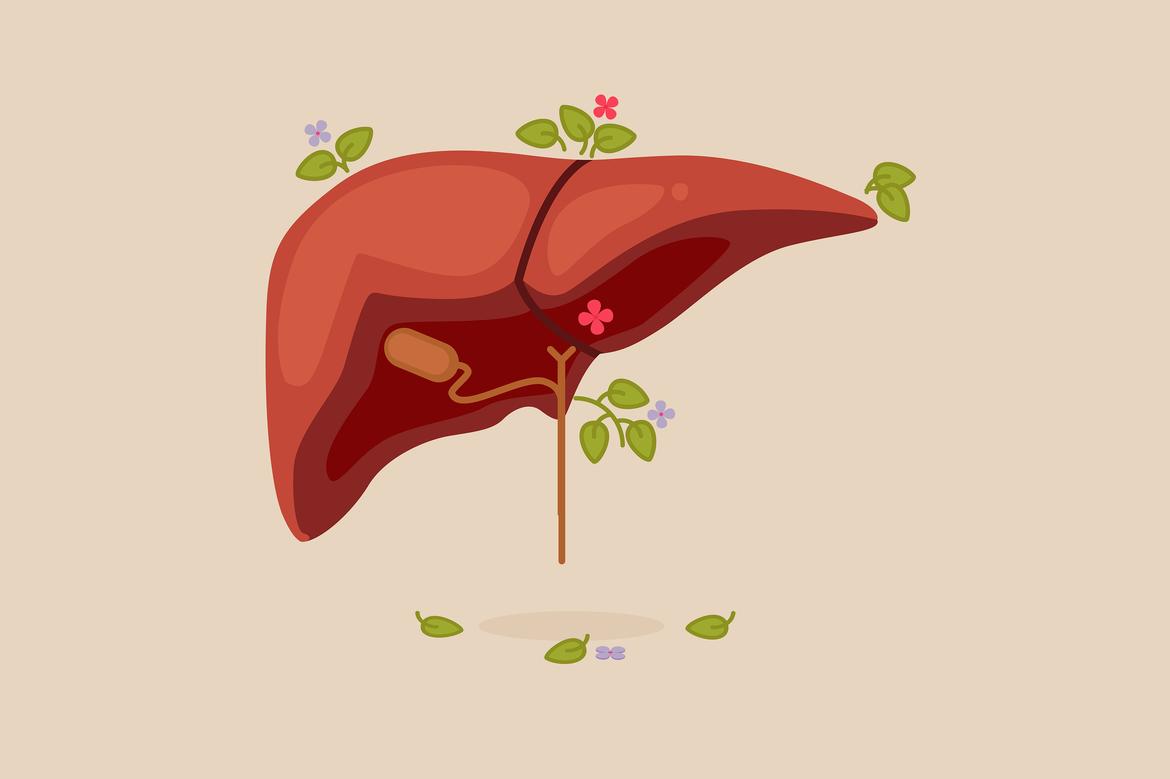-
-
Featured Care Areas

Liver Cancer
What is liver cancer?
Liver cancer refers to the abnormal growth of tissue in the liver.
Primary liver cancer occurs when the tumour starts from the cells of the liver, while secondary liver cancer occurs when the main cancer spreads from another part of the body and deposits cancer cells in the liver.
Types of primary liver cancer
There are several types of primary liver cancer. They include:
Hepatocellular carcinoma (HCC)
A cancer growing from the main cells in the liver is called hepatocellular carcinoma (HCC) or hepatoma. It is the most common type of primary cancer.
Cholangiocarcinoma (bile duct cancer)
The cells that line the bile ducts (tubes) are called cholangiocytes. A tumour in these cells is called a cholangiocarcinoma or bile duct cancer.
What are the symptoms of liver cancer?
It can be confusing to distinguish the symptoms of liver cancer as most of them are similar to symptoms of other health conditions.
In addition, liver cancer often does not present symptoms in its early stage. It is best to consult a doctor if you experience any of the following liver cancer symptoms:
- Upper abdominal pain – The pain of liver cancer is typically felt on the upper right portion of the abdomen. It sometimes extends to the back or can be felt in the lower right part of the rib cage.
- Abdominal swelling – The growing cancer causes the liver to get bigger, causing the right side of the abdomen to swell. The cancer can also increase the pressure in the liver, causing blood to back up in the veins. This can cause ascites (fluid collecting in spaces within the abdomen), leading to abdominal swelling.
- Nausea and vomiting – Liver tumours are more likely to cause nausea and vomiting.
- Jaundice – When cancer blocks the bile duct or when the liver is no longer functioning properly, bilirubin can build up in the blood and lead to jaundice.
- White, chalky stools – Liver cancer can cause white, chalky stools caused by lack of a liver enzyme called bile.
- Weight loss – If you don’t know why you are losing more than 10% of your body weight, consult a doctor.
What causes liver cancer?
There are 3 main causes of primary liver cancer:
- Chronic hepatitis B infection
- Chronic hepatitis C infection
- Liver cirrhosis caused by excessive alcohol consumption
Other causes are less common and may include inherited liver conditions, non-alcoholic fatty liver disease, and exposure to certain chemicals or toxins.
What are the risk factors for liver cancer?
The likelihood of developing liver cancer is increased by the following factors:
- Heavy alcohol consumption – Too much alcohol intake causes cirrhosis, which is highly associated to an increased risk of liver cancer.
- Viral hepatitis B and C – These can be transmitted by being exposed to bodily fluids or blood through physical injury, being exposed to infected needles during drug use or tattooing, or through sexual contact. Not being cleared of this virus or persistently having the infection can increase your risk of having liver cancer.
- Non-alcoholic fatty liver disease – Caused by obesity, high cholesterol or diabetes, it can lead to cirrhosis, a risk factor for liver cancer.
- Exposure to aflatoxins – Long-term exposure to cancer-causing substances called aflatoxins greatly increases the risk for liver cancer, especially for people with hepatitis B or C. Aflatoxins come from fungi found in some crops like corn, rice, wheat, peanuts, and soybeans.
- Exposure to certain chemicals – These include vinyl chloride, thorium dioxide, and thorotrast.
- Anabolic steroids – Long-term use of anabolic steroids can increase the risk of liver cancer.
- Liver cirrhosis – This condition happens when damaged liver cells are replaced by scar tissue.
- Inherited metabolic diseases – These include hemochromatosis (a disorder in which there is too much iron in the body) and Wilson's disease (a disorder in which excess copper builds up in the body).
What are the complications and related diseases of liver cancer?
Liver cancer can lead to several complications and diseases, as the tumour can put pressure on nearby organs, cancer cells can cause changes in hormones, and liver dysfunction can cause toxins to build up.
Here are some of the complications and related diseases of liver cancer:
Bile duct obstruction
The liver produces bile, a fluid essential in the digestion of lipids in the small intestine. Bile is transported to the small intestine through ducts. In liver cancer, tumours that developed within these ducts can cause obstruction. An obstructed duct causes symptoms like persistent and severe pain in the right upper abdomen, itching, nausea, vomiting, and jaundice.
Bleeding
With liver cancer, the liver does not produce enough proteins that help in blood clotting. Without the right amount of these blood-clotting proteins, you may have bleeding problems, which can also lead to anaemia.
Portal hypertension
Liver cancer can create a blockage in the blood flow through the liver. This blockage can lead to portal hypertension, an increase in pressure within the portal vein that carries blood from the digestive organs to the liver. Symptoms and complications of portal hypertension include gastrointestinal bleeding, encephalopathy or confusion, reduced levels of platelets, and decreased white blood cell count.
Hypercalcaemia
Liver cancer can cause hormone problems that hinder the function of other organs, causing high calcium level in the blood or hypercalcaemia. Some common symptoms of hypercalcaemia are nausea and vomiting, extreme muscle weakness, and confusion, which can progress to coma and even death if left untreated.
Hepatorenal syndrome
When liver disease leads to kidney disease, it results to a condition called hepatorenal syndrome. It is caused by changes in blood vessels and reduced blood flow to the kidneys. Hepatorenal syndrome is a common complication of liver cancer and liver diseases.
Hepatic encephalopathy
Liver cancer can lead to hepatic encephalopathy, a decline in brain function due to severe liver disease. When the liver can no longer sufficiently eliminate toxins from the blood, toxins can build up in the bloodstream and result to brain damage. Symptoms include disorientation, memory loss, severe confusion, and personality changes.
Can liver cancer be prevented?
You can prevent liver cancer by lessening your exposure to risk factors for the disease. Here are some ways:
- Treat and regularly monitor hepatitis B
- Treat diseases that increase risk for liver cancer, such as hemochromatosis
- Limit alcohol intake and tobacco use
- Limit exposure to cancer-causing chemicals
- Maintain a healthy body weight, and make sure cholesterol levels and diabetes are under control
This page has been reviewed by our medical content reviewers.
Need help?
For enquiries, please call
+65 6575 7575
For appointment bookings, please WhatsApp
+65 8111 9777





